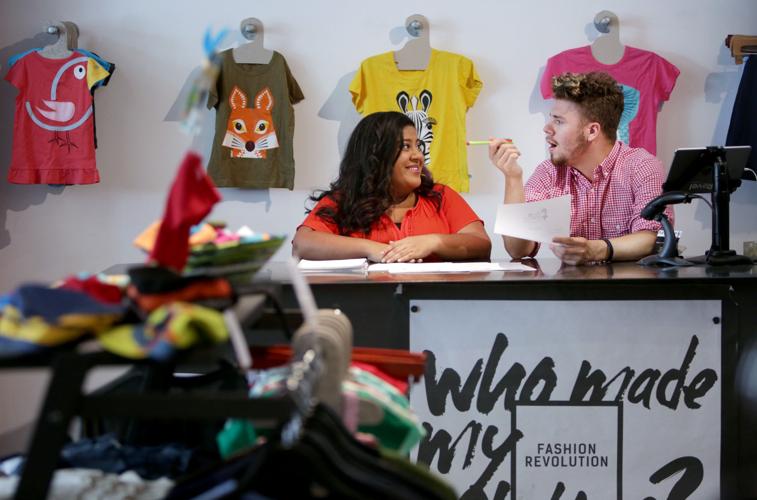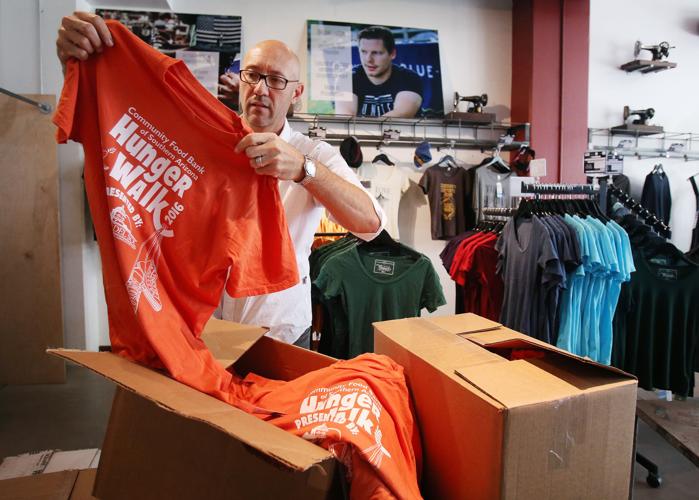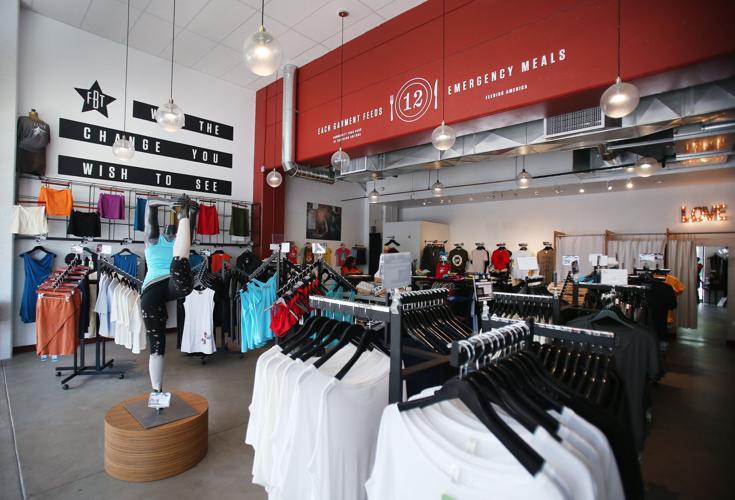Tucson’s Fed by Threads wants to become the Target of organic clothing, its owners say, servicing a growing segment of mainstream customers interested in fashion made in America out of sustainable materials.
Initial plans call for five stores in the next two years, with two locations — in Seattle and San Diego — already scheduled to open by September 2017. Other targeted cities include Portland, Atlanta, Austin, Boulder and New York.
“This company has more potential than any I’ve ever worked for,” said co-owner Skya Nelson, who has decades of experience in the apparel industry and is a former creative director at Raytheon. “The market is poised and no one is out there competing like we want to compete.”
With growth comes change for the local retailer — putting in a new supply chain, point-of-sale systems and basically devising processes for everything. As it prepares to go from virtually a one-man operation into having a national presence, there have been some growing pains, Nelson said.
But while there’s an adjustment to how things are done on the business side, the company’s values remain the same, said Alok Appadurai, Fed by Threads co-founder and until recently a common sight behind the counter for longtime customers.
When Nelson joined as a business partner earlier this year, Appadurai had his “non-negotiables,” he said.
“I’m open to a lot of change. It may be bumpy, as change is. But the core ethos of sweatshop-free labor, sustainable materials and a commitment of feeding people through food banks stays as part of what we do.”
Business matters
Fed by Threads opened its doors inside a dance studio on East Ninth Street in 2012, the brainchild of Appadurai and photographer Jade Beall. Then as now, the store donated part of its profits to the Community Food Bank of Southern Arizona and a national hunger relief organization.
The business grew quickly — from one rack of clothes to a working store to chafing at the studio’s limited space. Manish Shah, owner of Maya Tea, came on as a partner and the store found a new location at 345 E. Congress St.
“We wanted to have a replicable store that we could open in cities across the country,” Appadurai said. “The interest here was a main street that was coming back to life, so we decided to plant our flag right here on Congress.”
There was always that drive to expand, but he needed help to get to the next phase, he said.
In January, Nelson walked in the door to shop with his wife. He had left corporate life looking to do something a little more fun, he said, and was impressed by what he saw.
“I just stood at the counter with him for about two hours, just asking questions, and he answered every one the way I would hope he would answer,” Nelson said. “He wanted to grow, he didn’t know how to grow and he was looking for people to come in.”
After three months of research and going over finances, he saw the company was in trouble but full of potential. He signed up and worked with Appadurai to rework the business side of Fed by Threads.
“The process has been very hard but the results are amazing. We went from a $75,000 loss last year to a $15,000 profit last month,” he said. “That’s just a huge turnaround in a little tiny company in a short amount of time.”
Conservative projections have them hitting $3.7 million in sales next year and $9 million by 2018, Nelson said.
“We have 500 corporate customers and 5,000 regular customers that we consider Tucsonan patrons. That was one guy here by himself (accomplishing that),” he said.
New marketing efforts — including an increased social-media presence and commercials — and having Appadurai get out into the world and push Fed by Threads among tastemakers, will help increase that customer base, Nelson said.
“We want 20,000, 30,000 shoppers here in Tucson alone and every store we open we’re looking for a (potential) customer base of 30,000 people before we even walk in the door,” he said.
Sustainable fashion
One of the goals of Fed by Threads is to bring more transparency into production and be able to talk about the supply chain that goes into creating every garment it carries, Appadurai said.
This is a move in the right direction, said Charlette Padilla, a professor of retailing and consumer sciences at the University of Arizona.
“I love the idea that they have a story behind their products,” she said. “What a wonderful thing to have if you buy something, to know the story.”
Unfortunately, with many of the clothes we buy now, that can be a horror story, she said.
“People are shocked when they realize how much of our resources we use when we make apparel. Water is the worst, because you use so much of it in the dying process and creating the fibers,” Padilla said.
Along with the environmental costs there is also the toll on the people — sometimes children — who work in unsafe conditions for a meager wage, just so a consumer half a world away can buy a cheap piece of clothing.
“Unfortunately, for most of us, the driver is the price. We really want a clean Earth, but ‘God, it’s on sale!’” she said. “As long as you continue to purchase, the cycle will continue.”
Still, the fashion industry is trying to do better, Padilla said, and there are ongoing efforts to create a more sustainable, environment- and worker-friendly supply chain.
“There’s been a lot of changes, just in education alone,” she said. “I know that my classes here at the U of A there’s a component in every one of them about sustainability.”
Fed by Threads is betting on that change at the consumer level, as well.
“Four years ago, we were the evangelists, we were the ones having to educate, and now more and more people are coming in already with that sense,” Appadurai said.
The store is seeing a customer who wants the opposite of the fast-fashion that gets worn once and then discarded, owners said — people who are committed to buying a few select, high-quality pieces that are bought to be used.
The company wants to offer the mix of a cool, ethical corporate background while at the same time delivering products on time and in the best way possible, owners said, calling it a “mix of Ben and Jerry’s and Zappos.”
It’s also the whole package, they said, unlike some brands that may be organic but use the cheapest labor they can find, or brands that respect labor but aren’t that sensitive to the environment. Their products offer both, they say.
“We have the producers lined up, we have factories, the design houses, so we’re poised to bring all of that together,” Appadurai said.
“The moment is right for a national brand to fill the gap, and Fed by Threads is the brand that we want people knowing about.”







